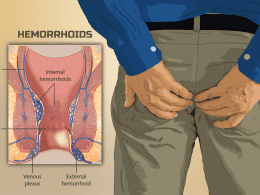Alternative medicine techniques have been gaining popularity over the years as people seek natural healing methods for their ailments. While traditional Western medicine has its place, more and more individuals are turning to different approaches that have been used for centuries in other parts of the world. In this blog post, we will explore five surprising alternative medicine techniques that you need to try today. From Traditional Chinese Medicine to Homeopathy, these practices offer unique perspectives on health and wellness that may just change your life! So grab a cup of tea and let’s dive into the world of alternative medicine together.
Traditional Chinese Medicine
Traditional Chinese Medicine (TCM) is a holistic approach to healing that has been practiced for over 2,000 years. It involves the use of various techniques such as acupuncture, herbal medicine, and dietary therapy to promote health and well-being. The underlying philosophy of TCM is based on the concept of Qi or life force energy that flows through our body.
Acupuncture is perhaps one of the most well-known practices in TCM. This technique involves inserting thin needles into specific points along the body’s meridians to balance the flow of Qi and treat ailments ranging from chronic pain to anxiety.
Herbal medicine is another key aspect of TCM which uses natural substances like roots, leaves, and flowers to create remedies tailored to each individual’s needs. These remedies are often combined with other therapies like acupuncture or massage for maximum effectiveness.
In addition to physical treatments, TCM also emphasizes lifestyle changes such as diet modification, exercise routines like Tai Chi or Qi Gong, and stress reduction techniques like meditation or deep breathing exercises.
While some may view TCM skeptically due to its difference from Western medicine practices, it continues to be a widely used alternative form of healing around the world.
Herbal Medicine
Herbal medicine is an alternative medical practice that involves using plant materials, such as leaves, roots, flowers, and bark for medicinal purposes. It has been used for thousands of years by different cultures around the world. In fact, many modern medicines are derived from plants.
Herbal medicine practitioners believe that natural remedies can be just as effective as traditional medications but with fewer side effects. They use a holistic approach to health care and focus on treating the underlying cause of disease rather than just symptoms.
One example of an herb commonly used in herbal medicine is chamomile. Chamomile tea is often recommended to help calm nerves and promote relaxation. Another widely used herb in herbal medicine is echinacea which has been shown to boost the immune system.
However, it’s important to note that not all herbs are safe or effective for everyone. Some herbs may interact with prescription medications or have harmful side effects if taken in large doses.
Therefore, it’s always best to consult with a healthcare professional before trying any type of herbal remedy or alternative treatment option.
Ayurvedic Medicine
Ayurvedic medicine is an ancient holistic healing system that originated in India over 5,000 years ago. It focuses on balancing the body, mind and spirit to achieve optimal health and wellness.
Ayurveda treats each person as a unique individual with their own specific constitution or dosha. There are three primary doshas: Vata, Pitta and Kapha. Ayurvedic practitioners use this information to customize treatments based on the patient’s specific needs.
One of the key principles of Ayurvedic medicine is the use of herbal remedies and dietary changes to promote balance within the body. This can involve using herbs like ginger, turmeric, ashwagandha and holy basil to address various health issues.
In addition to herbal remedies, Ayurvedic medicine also incorporates practices like yoga, meditation and massage therapy. These techniques help reduce stress and promote relaxation which can improve overall health outcomes.
While some aspects of Ayurvedic medicine may seem unconventional to Westerners, there is growing interest in this ancient practice due to its focus on holistic care. Whether you’re dealing with chronic pain or simply looking for ways to improve your overall well-being, incorporating Ayurveda into your healthcare routine could be beneficial for you.
Homeopathy
Homeopathy is a holistic alternative medicine technique that has been used for over 200 years. It involves using highly diluted substances to stimulate the body’s natural healing process. Homeopathic remedies are derived from natural sources such as plants, minerals, and animal products.
Homeopathy operates on the principle of “like cures like,” which means that a substance that causes symptoms in a healthy person can be used to treat similar symptoms in an ill person. For example, if someone experiences insomnia due to anxiety, a homeopath might prescribe Coffea cruda, which is made from coffee beans.
The dilution process involved in homeopathy raises some skepticism among conventional medical practitioners who believe there is little or no active ingredient left in the final product. However, proponents argue that it works by stimulating the body’s own healing mechanisms.
Homeopathy treats many conditions including allergies, arthritis, asthma, depression and anxiety disorders among others. The treatment plans offered by homeopaths are tailored to each individual patient and take into account their physical and emotional state.
While there may not be scientific evidence backing up its efficacy as a form of treatment; however millions of people still rely on this field of medicine today all around the world.
Conclusion
Alternative medicine has been around for centuries and continues to gain popularity as people seek out natural, holistic approaches to healthcare. Traditional Chinese Medicine, Herbal Medicine, Ayurvedic Medicine, and Homeopathy are just a few examples of the diverse range of practices available.
While some techniques may not be suitable for everyone or should only be practiced under the guidance of a qualified practitioner, exploring alternative medicine can introduce you to new ways of thinking about your health and well-being. These five surprising techniques are just the beginning – there is so much more to discover!
As with any form of medical treatment or therapy, it’s important to do your research before trying something new. That being said, alternative medicine offers a wealth of opportunities for those looking to improve their overall health and wellness in natural and effective ways.











